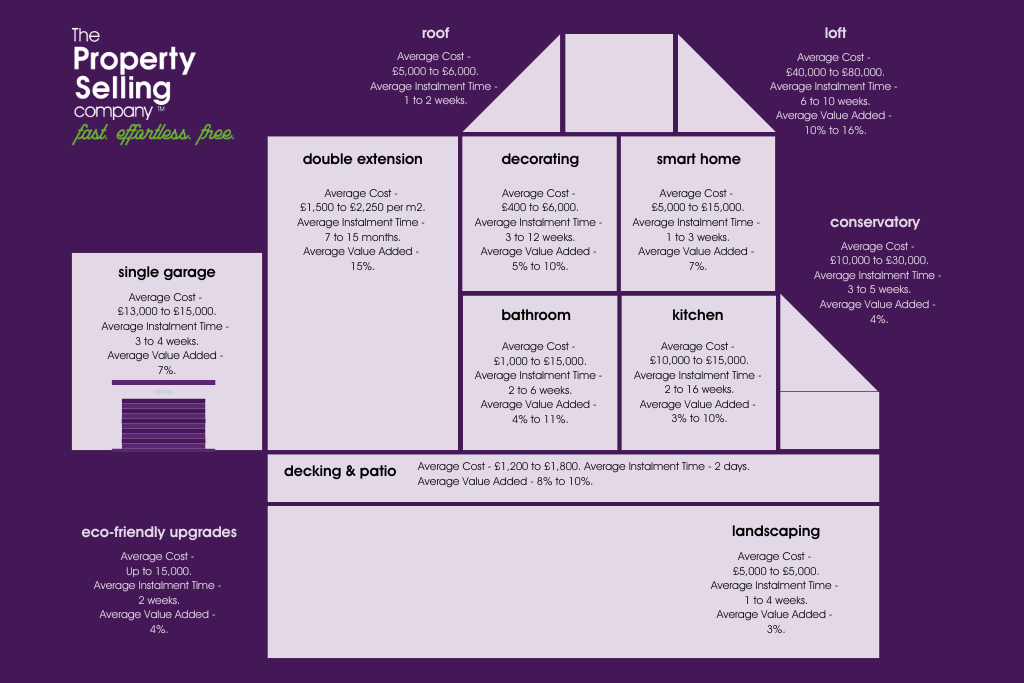
Can You Sell or Buy A House Without Building Regs?
Looking at what building regulations are, what they are used for, and whether you can buy or sell a house without building regs.
Sell your house in 28 days
WRITTEN BY: Alexandra Ventress ★ Digital Content Writer


Can you sell or buy a house without building regs?
Looking at what building regulations are, what they are used for, and whether you can buy or sell a house without building regs.
Sell your house in 28 days
WRITTEN BY: ALEXANDRA VENTRESS ★ Digital Content Writer


Table of Contents
When it comes to buying or selling a house, an aspect you may not be familiar with is building regulations. However, trying to buy or sell a house without them can be tricky business.
But what are building regulations? What do you need them for? And can you sell or buy a house without building regs?
Looking for a quick answer? Check out the interactive menu to the side.
What are building regulations?
Building regulations are regulations and instruments that are in place to make sure that buildings are built correctly and up to code. Building regulations approval is required for the majority of building work done across the UK and were introduced in 2010. It is a statutory requirement for you to obtain building regulations approval and you will need them signed off by a local authority in order to confirm that they are up to code.
When do I need building regulation approval?
Whilst it can feel confusing, only certain buildings and building works require building regulation approval. Below, we have broken down which types of buildings do and which do not require it:
What requires approval?
- Signing off a new build before completion
- Heat producing appliances
- Drainage
- New electrics
- Damp proofing
- Building an oversite
- Excavation and pouring of new foundations
- Cavity wall insulation
- Extensions
- Structural work
- Structural alterations
What does not require approval?
- The majority of repairs and maintenance (unless it involves oil tanks, fuse boxes, glazing units, or heating systems)
- Replacing toilets, sinks, basins, and baths
- Any work that has been carried out by a member of the Competent Persons Scheme
- New power points and lighting points
- Repairs or maintenance to exciting power circuits
What are notifiable works?
When work is carried out that requires building regulations approval, then it is classed as ‘notifiable work’. There are three levels of this notification:
- Full Plans– Before a project fully commences, a detailed plan will need to be submitted to LABC.
- Building Notice -Often used for smaller projects, detailed plans of this nature do not need to be submitted.
- Competent Person – If you use certain registered trade people, they may be able to issue a building regulations certificate on their own works.
Why would someone build without regulations?
There are many reasons why a home seller may have a property without building regulations. It could be a case of the owner being unaware that they required building regulations approval. The homeowner may have believed the work they were doing would not be granted permission so completed without regs. They could have been trying to cut costs by using an unregistered tradesperson or by doing work themselves.
What is the 10 year rule in building Regs?
The 10 year rule is a clause that may be applied if you own a property that has no building regs. If there has been a breach of building regulations (excluding dwellings) that has not been challenged for a period of 10 years.
Are building regulations enforceable after 10 years?
Whilst there is no time limit on your local authorities’ right to apply for an injunction, as a rule of thumb if 10 or more years have passed since the work was carried out, then there is no serious risk of action. After 10 years, you are more than likely safe, however, there are risks involved with selling or buying a house with a lack of building regulations.
Sell your house for free
What happens if you don't get building regulations?
As building regs are a legal requirement in order to make sure that your property is up to code and safety standards, you can find yourself facing serious repercussions if you do not comply with building regulations. These can include:
Should the building authorities inspect the property and the alterations have failed, then they will need to be done in order to comply with regulations. This brings with it the potential of steep bills, loss of profit and a property revaluation.
If the building authority has been notified about the lack of certification, then enforcement action may be carried out. If you are facing enforcement and do not make the changes to comply, you can be fined or even face court proceedings. This will be the case even if the building alterations were carried out by the previous owner.
If the structural works do meet regulations, then potential buyers may not be able to secure a mortgage on it. This will mean you may end up stuck on the open market for months, unable to secure a buyer.
As we have already mentioned, the purpose of building regs is to keep your building safe. If your property does not meet the standard, then you are opening yourself up to a whole host of potential problems, ranging from inconvenient to severe.
You can run the risk of insufficient insulation leaking away the heat in the property which can bring with it its own problems, such as damp and mould, and higher heating costs.
There are also serious problems you may end up facing if the building work you have done is not up to code:
- Fire or flooding as a result of improperly installed plumbing or electrics
- Kitchen appliances overheating or breaking due to insufficient ventilation
- Subsidence or collapse as a result of too-shallow foundations
- Serious trip hazards due to irregular tread on stairs or drop size
- The building could be at risk of collapsing due to knocking through walls without sufficient reinforcement.
What happens if I buy a house without building regulations?
If you purchase a property without building regulations, then you have a few options that you can explore in order to correct this issue. Below are some of the most popular choices when it comes to buying a home without building regulations:
Indemnity Insurance
The most common method to correct buying a property without building regs is to apply for indemnity insurance. Whilst this is often viewed as the cheaper and easier option, it is still a legal procedure, so it is worth talking to a conveyancing solicitor in order to fully understand the pros and cons of this option.
Indemnity insurance offers you and your lender protection “where there is a defect in the title which cannot be resolved”. Whereas with a regular insurance policy where you may monthly or annually, when it comes to an indemnity policy, you only pay it once.
Indemnity insurance will protect you from enforcement action taken by authorities in the case of buildings control approvals.
Retrospective building control approval
If you have had work done that does not meet the proper regulation, then you can apply for building control approval on work that has already been taken out. This process is referred to as ‘regularisation’ and occurs when a building control surveyor conducts an inspection of your property and accesses if it’s in line with regulations and standards.
It can be a complicated and time-consuming process, however, if you pass, you will have your regularisation certificate. You will need to engage with the local council if you wish to receive an inspection and building regulation requirements compliance certificate and you will need to pay for it to be done.
It is worth noting that regularisation will only be available on work that has been carried out after 11th November 1985, but the majority of local councils will only issue regularisation on building work that is 10-15 years old.
How to sell your house without building regs?
When it comes to selling a home without building regulation compliance, you have three main options. You can sell through either a property auction, cash buyer, or an estate agent. As with any selling option, each of these selling options comes with its own pros and cons, which we have broken down for you below.
Property Auction
One option for selling your property without a building regulations completion certificate is to put it onto a property auction. A property auction is becoming an increasingly popular selling option. An advantage to selling through a property auction is that once the gavel goes down, the winning bid becomes legally binding.
However, the downside to selling through property auctions is that they are not a speedy method of sale. You may end up waiting for several weeks before you can put your property on the auction, and even if you are successful, you will still have to wait for the sale to complete, and will still be charged a commission at the end, eating away at your final profit.
Cash Buyer
If you are selling a house without building regulations, one route you may wish to explore is a cash buyer. Cash buyers will often buy your house regardless of the condition or location, making them a great choice for those looking to sell without building regulation approval.
However, it is worth bearing in mind that cash house buying is an unregulated business, so you will need to carefully vet the company you choose to sell with if this is a route you wish to explore. You should look out for those who are part of regulatory boards such as The Property Ombudsman or The National Association of Property Buyers.
It is also worth keeping in mind that cash buyers will not offer you 100% market value. They will usually buy your house for below market value, but if you are looking for a fast sale, then this is a route to keep in mind. However, in order to secure this sale, your final profit may have to take a hit.
Estate Agent
Another option to explore is estate agents. Estate agents will undertake all of the heavy lifting involved with your house sale, such as creating a listing, marketing your property, organising viewings, and handling negotiations for you, in return for a percentage of the final sale price.
Another advantage to selling through an estate agent is that they have a bank of knowledge and experience when it comes to selling properties of all kinds.
If estate agents are a route you wish to further explore, read on…
Sell to us!
Looking to save on estate agent fees after purchasing indemnity insurance? Or maybe you are seeking a sale that is fast, effortless, and free?
Here at The Property Selling company, we believe that selling a house should be three things: fast, effortless, and free.
We offer you a full online estate agent service, without the fees – because it’s our mission to change the way you sell houses.
We will be working alongside you every step of the house-selling process, covering everything, so you won’t have to. The days of expensive solicitor fees and legal work are over, and our team of property experts will continue to be there, even after the process is complete.
We will market your property on popular property portals such as Rightmove and Zoopla, organise viewings, cover legal fees, and negotiate better deals all for free!
If you are ready to sell your home in as little as 28 days, then get in touch today and fill out one of our fast, free, no-obligation forms for your house valuation today!
What are you waiting for? Sell the easy way









